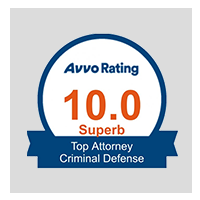- Complete text taken from South Carolina CDV Law
- Comments by the Law Office of James R. Snell, Jr., LLC, in bold
SECTION 16-25-20:
Acts prohibited; penalties; criminal domestic violence conviction in another state as prior offense
(A) It is unlawful to:
(1) cause physical harm or injury to a person's own household member; or
"Physical harm" as used here has been interpreted the Courts to including contact which is "rude, insolent, or revengeful." There is no requirement that "physical harm or injury" actually means "harm or injury." Any contact or attempted contact, regardless of degree, can satisfy this requirement.
"Household member" has its own special meaning in CDV cases.
It is defined previously in S.C Code §16-25-10. Unless there is a "household member" relationship the
defendant is not guilty of domestic violence.
(2) offer or attempt to cause physical harm or injury to a person's own
household member with apparent present ability under circumstances reasonably
creating fear of imminent peril.
This section allows a CDV arrest to be made when the defendant by actions,
words, body language or mannerisms acts in such a way that a reasonable
person would be placed in fear. When the case involves married partners
charges based solely on words, with no corresponding physical action,
are subject to a challenge based on spousal privilege.
(B) Except as otherwise provided in this section, a person who violates
the provisions of subsection (A) is guilty of the offense of criminal
domestic violence and, upon conviction, must be punished as follows:
(1) for a first offense, the person is guilty of a misdemeanor and must
be fined not less than one thousand dollars nor more than two thousand
five hundred dollars or imprisoned not more than thirty days. The court
may suspend the imposition or execution of all or part of the fine conditioned
upon the offender completing, to the satisfaction of the court, and in
accordance with the provisions of Section 16-25-20(H), a program designed
to treat batterers. Notwithstanding the provisions of Sections 22-3-540,
22-3-545, and 22-3-550, an offense pursuant to the provisions of this
subsection must be tried in summary court;
These are the penalties for a first offense CDV charge. If you are convicted the judge can decide whether or not to send you to jail for up to 30 days, or impose a fine. Court costs are added to the fine amount and the total can be up to $5,250. The judge will not have any authority over whether or not the conviction goes on your record, whether or not you can legally possess a firearm or whether or not your employer will terminate your employment.
(2) for a second offense, the person is guilty of a misdemeanor and must
be fined not less than two thousand five hundred dollars nor more than
five thousand dollars and imprisoned not less than a mandatory minimum
of thirty days nor more than one year. The court may suspend the imposition
or execution of all or part of the sentence, except the thirty-day mandatory
minimum sentence, conditioned upon the offender completing, to the satisfaction
of the court, and in accordance with the provisions of Section 16-25-20(H),
a program designed to treat batterers. If a person is sentenced to a mandatory
minimum of thirty days pursuant to the provisions of this subsection,
the judge may provide that the sentence be served two days during the
week or on weekends until the sentence is completed and is eligible for
early release based on credits he is able to earn during the service of
his sentence, including, but not limited to, good-time credits;
These are the penalties for a second offense CDV charge. Here is where
CDV convictions start coming with mandatory jail or prison time.
(3) for a third or subsequent offense, the person is guilty of a felony
and must be imprisoned not less than a mandatory minimum of one year but
not more than five years.
This is the penalty section for third offense CDV. Now the minimum prison sentence for a conviction is one year.
(C) For the purposes of subsections (A) and (B), a conviction within the
previous ten years for a violation of subsection (A), Section 16-25-65,
or a criminal domestic violence offense in another state which includes
similar elements to the provisions of subsection (A) or Section 16-25-65,
constitutes a prior offense. A conviction for a violation of a criminal
domestic violence offense in another state does not constitute a prior
offense if the offense is committed against a person other than a "household
member" as defined in Section 16-25-10.
If a defendant has a prior conviction for criminal domestic violence in South Carolina within the past ten years they can be charged as a 2nd offense. If the conviction is from another state it may or may not be considered a prior domestic violence offense for purposes of South Carolina law.
When someone has been charged as a 2nd or 3rd offense it is important to check the actual dates of the conviction to ensure that the prior conviction is within the past ten years. If an out of state conviction is being used as a prior offense it is necessary to obtain official records of that case from the other state and check the language of that state's law as it existed at the time of the conviction. The police or the prosecutor can make mistakes resulting in someone being charged with a 2nd or 3rd offense improperly.
(D) A person who violates the terms and conditions of an order of protection
issued in this State under Chapter 4, Title 20, the "Protection from
Domestic Abuse Act", or a valid protection order related to domestic
or family violence issued by a court of another state, tribe, or territory
is guilty of a misdemeanor and, upon conviction, must be imprisoned not
more than thirty days and fined not more than five hundred dollars.
If there is a Family Court issued "Order of Protection" and it is violated this section creates a separate criminal penalty of up to thirty days. This is in addition to the potential contempt sanctions which can be imposed by the Family Court (up to one year in jail) or the CDV Court for violating "no contact" bond restriction (up to 30 days for a CDV 1st). This language appears to provide for up to thirty days in jail for any violation of the terms of the "Order of Protection", which would not only include contact with the alleged victim but also any terms related to spousal support, child support, or property.
(E) Unless the complaint is voluntarily dismissed or the charge is dropped
prior to the scheduled trial date, a person charged with a violation provided
in this chapter must appear before a judge for disposition of the case.
Anyone charged with Criminal Domestic Violence must appear in Court for their charge. They are not allowed to simply remit the fine in advance (like people do for a speeding ticket). It should be noted that although the text of the law would allow for a voluntary dismissal prior to Court, the "no drop" policy of the South Carolina Attorney General's office or the local prosecutor still applies.
(F) When a person is convicted of a violation of Section 16-25-65 or sentenced
pursuant to subsection (C), the court may suspend execution of all or
part of the sentence, except for the mandatory minimum sentence, and place
the offender on probation, conditioned upon:
(1) the offender completing, to the satisfaction of the court, a program
designed to treat batterers;
(2) fulfillment of all the obligations arising under court order pursuant
to this section and Section 16-25-65; and
(3) other reasonable terms and conditions of probation as the court may
determine necessary to ensure the protection of the victim.
As part of the sentence from a conviction for CDV, the judge can incorporate a 26 week domestic abuse counseling program in addition to or instead of jail or fine sentence.
(G) In determining whether or not to suspend the imposition or execution
of all or part of a sentence as provided in this section, the court must
consider the nature and severity of the offense, the number of times the
offender has repeated the offense, and the best interests and safety of
the victim.
The judge should consider all aspects of the case when deciding whether
or not to impose a jail sentence or a fine.
(H) An offender who participates in a batterer treatment program pursuant
to this section, must participate in a program offered through a government
agency, nonprofit organization, or private provider approved by the Department
of Social Services. The offender must pay a reasonable fee for participation
in the treatment program but no person may be denied treatment due to
inability to pay. If the offender suffers from a substance abuse problem,
the judge may order, or the batterer treatment program may refer, the
offender to supplemental treatment coordinated through the Department
of Alcohol and Other Drug Abuse Services with the local alcohol and drug
treatment authorities pursuant to Section 61-12-20. The offender must
pay a reasonable fee for participation in the substance abuse treatment
program, but no person may be denied treatment due to inability to pay.
This language creates the requirement that any counseling programs ordered
by the Court be approved by the Department of Social Services and that
in addition to domestic abuse counseling the Court or the counseling agency
can require substance or alcohol abuse treatment as well.
HISTORY: 1984 Act No. 484, Section 1; 1994 Act No. 519, Section 1; 2003
Act No. 92, Section 3, eff January 1, 2004; 2005 Act No. 166, Section
2, eff January 1, 2006; 2008 Act No. 255, Section 1, eff June 4, 2008.






